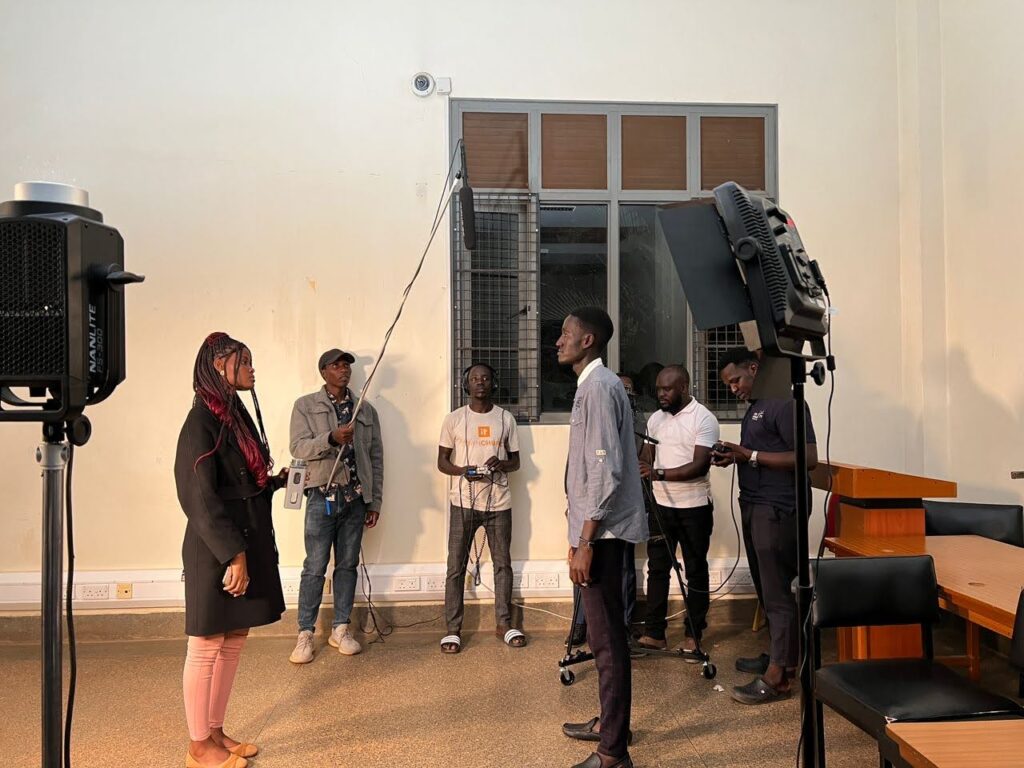By Ronald Ocweo
“It has become glaringly evident that technology has surpassed our humanity.” Albert Einstein once remarked.
Today, anyone with the applicable skills and knowledge can benefit from the digital economy regardless of their background. It is important to recognize that technology’s transformative power can create an inclusive society and promote the development of skills needed to participate in the digital economy.
In order for this to happen however, academic programmes and scholars, particularly in fields heavily influenced by technology like journalism, media, and communication, need to collaborate effectively in order to provide the next generation of students with skills that are pertinent to the industry. These skills provide a competitive edge and diverse career opportunities in digital media, technology, and communications. They also enhance graduates’ entrepreneurial prospects.
Such collaboration also ensures that the curriculum remains up-to-date with emerging trends and technologies.
Mr. Frank Obonyo, the Public Relations Officer at the Law Development Centre agrees that, “The media sector evolves constantly. Education institutions must update journalism and communication curriculum with latest industry innovations. Technology is important but not the only focus… Journalism and communication ethos should not be overlooked.”
In an age where any individual equipped with a digital device such as a smartphone can create news stories formally or informally, there is a looming concern regarding what awaits journalism as a profession in the foreseeable future. Hence, the integration of digital essentials like web design, mobile applications, and creative tools into journalism curricula will not only appeal to students interested in digital media but also foster innovation and media entrepreneurship.
Winter Walter Muganzi, a 2024 first class Mass Communication graduate from Uganda Christian University asserts, “I support transitioning journalism education to be more practical and profitable. It will provide a strong foundation for students in the digital newsroom. Traditional newsrooms are shifting towards digitalization. This university-level preparation will improve graduates’ employability and simplify the onboarding process for employers.”
Mercy Grace Kyomuhendo, a fourth year journalism and communication student at Makerere University also agreed to this and stated, “I think it is a good thing. This is because journalism students are empowered to do things on their own. They can be a media house in motion. This give students an opportunity and exposure to tools that are vital in the continuously changing media landscape, so it greatly prepares students for the future.”
However, Mr. Francis Acaye, who serves as a lecturer and technician in the School of Journalism, Media, and Communication at Uganda Christian University, emphasized during an interview that. “Journalism does not revolve around web and mobile application design and development. The tools discussed are merely the means by which journalists convey stories. These tools are dynamic and fall more within the realm of ICT. While journalism certainly contributes to information and communication, it also wields influence over technology.”
For Michael Ainomugisha, a podcaster and digital enthusiast, individuals interested in the field now need to possess a diverse set of skills.
“By combining these various components, a new breed of journalists emerges – not just as multitaskers, but as creative and innovative professionals. This is a concept that I wholeheartedly endorse,” he says.
Lucy Nuwasasira, a 2024 Mass Communication class graduate from Uganda Christian University argues that the integration of these digital essentials would be a powerful synergy. She argues that journalists need to be versatile, not just in storytelling, but also delivery of the story to their audience. Including these “digital essentials ” would be a good preparation for the students to meet the demands of this evolving digital era.
This makes institutions such as Northwestern University’s Medill School of Journalism located in Illinois, United States a point of interest, While many other academic institutions offer Bachelor of Arts programs in Mass Communication or Journalism, Medill distinguishes itself by providing a Bachelor of Science in Journalism (BSJ) degree. This STEM-designated program is crafted to equip students with the requisite skills and training necessary for launching successful careers. (STEM – Science, Technology, Engineering, and Mathematics)
Other institutions can copy from the university and find ways to equip students with both the important and unquestionable tenets of journalism as well as the tools to do reporting to appeal to a world that is constantly changing and innovating.
It is imperative to acknowledge that the fourth industrial revolution necessitates a distinct set of competencies to excel in an increasingly technology-driven realm. These competencies may not solely hinge on the academic courses we undertake, but rather on our capacity to adapt to emerging trends in order to not only align with employers’ requirements but also cultivate a heightened entrepreneurial acumen to combat the pervasive unemployment rates in developing nations like Uganda.


